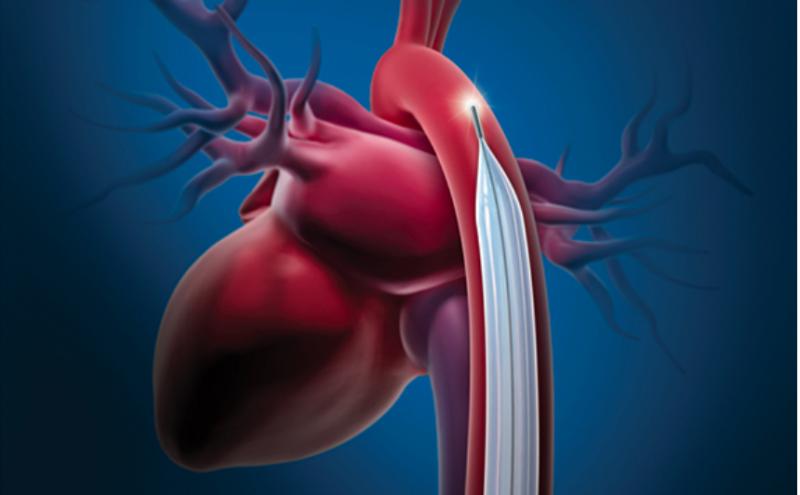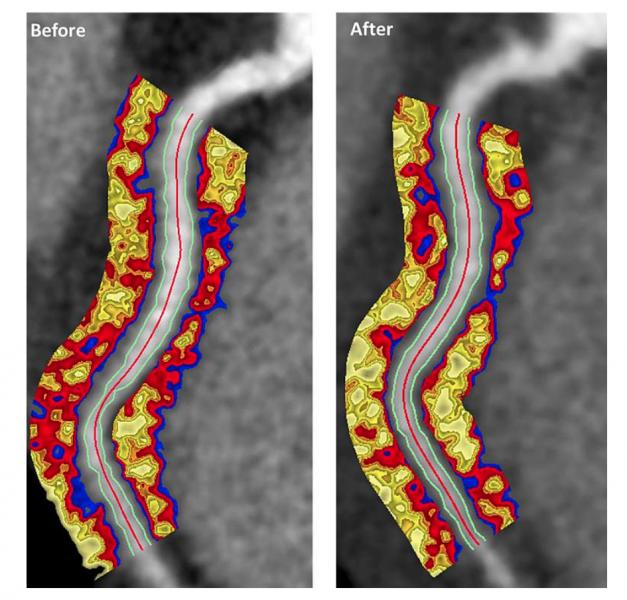
Here is the list of the most popular cardiovascular news content on the Diagnostic and Interventional Cardiology (DAIC) magazine website from the month of July 2019. This is based on the website’s 261,124 pageviews for the month:
The U.S. Food and Drug Administration (FDA) issued a new draft guidance titled Testing and Labeling Medical Devices for Safety in the Magnetic Resonance (MR) Environment.
Dassault Systèmes announced the five-year extension of its collaboration with the U.S. Food and Drug Administration (FDA). The 3DEXPERIENCE platform will be used to develop a new digital tool to enable more efficient regulatory review of cardiovascular and medical devices. Researchers hope the process will increase industry innovation and pave the way for an efficient path for patients to access safe, effective new treatments for the world’s leading cause of death – heart disease.
Providing exceptional cardiovascular care for patients to achieve the best possible outcomes is the number one goal for ...
Less-invasive procedures to open severely clogged leg arteries were as good at helping people survive and avoid amputation as more invasive open surgeries, according to a new study. The results were reported in Circulation: Cardiovascular Quality and Outcomes, an American Heart Association journal.
Clinical trials are a critical tool for getting new treatments to people who need them, but research shows that difficulty finding the right volunteer subjects can undermine the effectiveness of these studies. Researchers at Cincinnati Children’s Hospital Medical Center designed and tested a new computerized solution that used artificial intelligence (AI) to effectively identify eligible subjects from electronic health records (EHRs), allowing busy clinical staff to focus their limited time on evaluating the highest quality candidates.

July 31, 2019 — Researchers found anti-inflammatory drug therapies used to treat moderate to severe psoriasis can ...
Cardiac positron emission tomography (PET) is growing in popularity among cardiologists because it provides the ability ...
The chances of patients experiencing complications after having a cardiac device implanted vary according to where they have the procedure.
Silicon Valley-based digital health company Eko announced Eko Home, a new service that enables precise remote monitoring of cardiac function using electrocardiogram (ECG) and heart sounds. Eko Home can be used to create drug-data combinations to demonstrate real-world efficacy for pharma trials, while simultaneously allowing clinicians to collect high-quality data while outside of the clinical environment.
Nate Bachman, graduate research assistant in the Human Cardiovascular Physiology Lab of the Dept. of Health and Exercise ...
When performing radiofrequency (RF) ablation to treat cardiac arrhythmia, medical professionals must balance the safety ...
Procyrion Inc. secured Breakthrough Device designation by the U.S. Food and Drug Administration (FDA) for its Aortix System. Aortix is a circulatory support device for chronic heart failure patients on medical management who have been hospitalized for acute decompensated heart failure (ADHF) with worsening renal function.
High blood pressure among children is on the rise and a lack of research about how to treat it has left pediatricians trying to make their best guess. That’s until researchers at The University of Texas Health Science Center at Houston (UTHealth) released results of a pioneering study that used a series of personalized trials to identify a preferred therapy for kids – the first step in tackling the problem.
Cancer patients taking cholesterol-lowering statin medication following radiation therapy of the chest, neck or head had significantly reduced risk of suffering a stroke, and possibly other cardiovascular complications, according to new research. The research appeared in Journal of the American Heart Association.
Change Healthcare Cardiology Hemodynamics is an integrated hemodynamic monitoring system for monitoring vital signs and ...
The loss of a single gene two to three million years ago in our ancestors may have resulted in a heightened risk of cardiovascular disease in all humans as a species, according to new research. Loss of the gene may have also set up a further risk for red meat-eating humans. The findings were published July 22, 2019 in Proceedings of the National Academy of Sciences (PNAS).
Significantly more patients suffer cardiac arrests in U.S. hospitals each year than previously estimated, according to new research in Circulation: Cardiovascular Quality and Outcomes, an American Heart Association journal.
Mark Ibrahim, M.D., FACC, assistant professor of medicine and radiology, associate program director, advanced cardiac ...

 August 02, 2019
August 02, 2019















